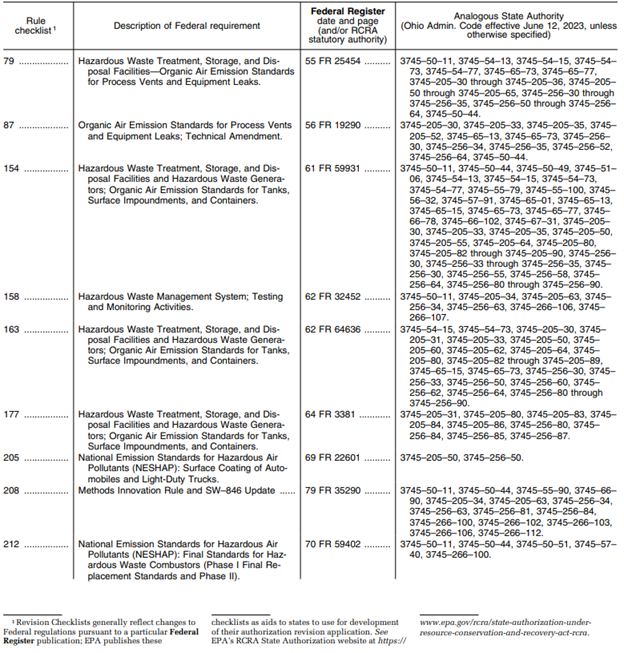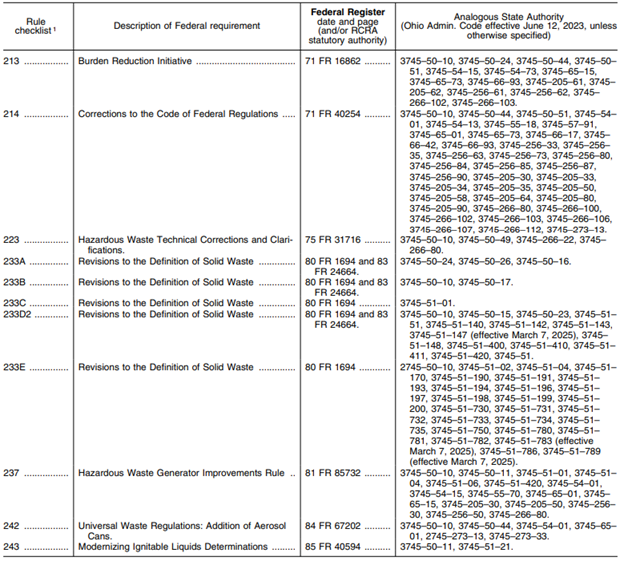US EPA Issues Draft Approval of Additional Authorization for Ohio’s RCRA Program
On November 18, 2025, US EPA proposed approving the state of Ohio’s application for further authorization of its state Resource Conservation and Recovery Act (RCRA) program. 90 Federal Register 51625 (November 18, 2025). The added authorizations include the Organic Air Emissions Standards, the revised Definition of Solid Waste, the National Emission Standards for Hazardous Air Pollutants, and Addition of Aerosol Cans to the Universal Waste Regulations. US EPA is accepting public comments on the proposed approval through December 18, 2025.
US EPA first authorized Ohio’s state RCRA program in 1989 and it has received additional authorizations numerous times over the years. RCRA allows US EPA to authorize state programs that are equivalent to, consistent with, and no less stringent than, the federal program, inclusive of any regulatory changes that US EPA finalizes. As an authorized state, Ohio (through the Ohio Environmental Protection Agency, OH EPA) is the primary RCRA regulatory and enforcement body in the state. US EPA retains the ability to seek federal enforcement which includes the ability to act, even if OH EPA already has.
The proposed authorizations will not have any immediate effect on regulated entities in Ohio – Ohio has already adopted the federally-consistent rules in the state’s laws and rules. The table below summarizes the full extent of rules covered by this proposal and their federal counterparts. Therefore, the biggest change will be seen by an entity previously regulated by both OH EPA and US EPA who can now primarily work with OH EPA on RCRA matters.
For example, a facility with a federally approved RCRA permit under the Organic Air Emissions standards for RCRA tanks, impoundments or containers has several options. They can continue to operate under their federal permit – with US EPA as the primary regulator for that rule – and their state permit with OH EPA taking the lead on the remaining portions. Once their RCRA permit expires the facility will need to renew a “new, full” RCRA permit with Ohio EPA and terminate the federal permit. A second option is to modify their state permit now to include the newly authorized rules and then terminate the federal permit. This streamlined approach may provide immediate benefits. Entities with both state and federally issued RCRA permits should review their permits and strongly consider the potential implications and benefits of continuing “as-is” or seeking a “new, full” state-only RCRA permit.
Vorys attorneys David Edelstein, Kristin Watt and Jake Bartlett have experience with RCRA permits and issues and are available to discuss these issues with clients





